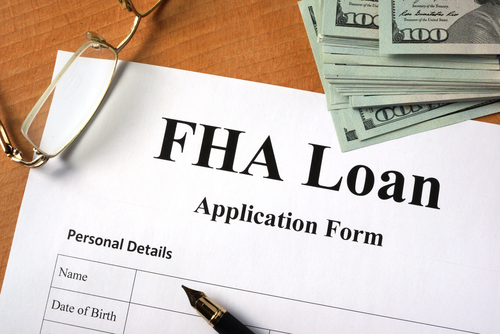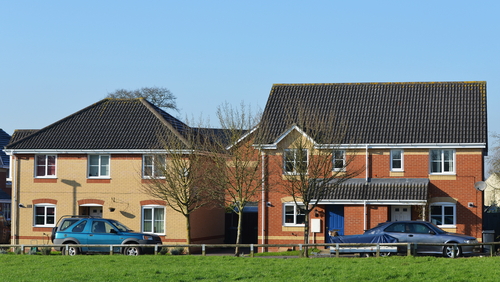
You can’t get a mortgage until you can afford the home loan payment. But the amount of your paycheck isn't the only thing banks consider. Underwriting also looks at the stability of your income. Not everyone applying for a mortgage is approved. And sadly, some people are rejected for home loans because they don’t fully understand a lender’s income requirements. You don't need perfect circumstances to qualify for a mortgage loan. But you must prove that your income is stable and consistent. 1. No gaps in employment When applying for a home loan, the lender also looks at your employment history. The bank checks for any significant or recent gaps in employment. Of course, mortgage lenders realize that some situations are beyond your control. So if you have gaps in employment within the past two years, you might still qualify for a loan if you can provide a reasonable explanation. Maybe you were laid off, but found work within a couple of weeks or months in the same field. But if you’re just now returning to the workforce after a… Read more

FHA home loans (which are insured by the Federal Housing Administration) are marketed as one of the best loan products for first-time homebuyers. Because these loans only require a low down payment of 3.5%, qualifying for an FHA home loan means you can purchase a property with less money out-of-pocket. These loans also allow a credit score as low as 500 to 580. But while these mortgages are attractive, they aren't perfect. Before you apply for an FHA mortgage, here’s what you should know about this program. 1. Upfront mortgage insurance premium You’re probably aware that some mortgage programs require borrowers to pay mortgage insurance if they don’t have at least a 20% down payment. Mortgage insurance protects the bank in case of default. What you may not realize, however, is that when you apply for an FHA home loan, you’re required to pay an upfront mortgage insurance premium. This extra premium increases your total loan balance. As of 2016, the upfront mortgage insurance premium is 1.75% of the loan balance. You don't pay this premium out-of-pocket at closing, rather… Read more

There's a plethora of mortgage options available to homebuyers, such as FHA loans, conventional loans, VA loans and USDA loans. But even if you qualify for a particular program, you might have difficulty saving up enough cash for a down payment and closing costs. Fortunately, some programs make it easier for first-time homebuyers to qualify for a mortgage and complete a home purchase. First-time homebuyer loans are unique and typically feature lower down payments or grant money to assist buyers with mortgage-related expenses. Additionally, some programs have subsidized interest rates which can help first-time buyers qualify for the lowest rate possible and enjoy a cheap mortgage payment. These loans have helped millions of families, but there are a few things you should know about first-time homebuyer loans. 1. You can qualify even if you're not a first-time homebuyer When you think about first-time homebuyer loans, you might assume these loans are only available to borrowers who have never purchased a property. The interesting thing about these particular loans is that you can qualify even if you're technically “not” a first-time… Read more

With interest rates at an all-time low, now’s a good time to become a homeowner or move up. There are plenty of reasons to own a piece of your American dream. Homeowners, on average, have a greater net worth than renters, plus owning can provide a sense of accomplishment. But once you begin the process of buying and speak with mortgage lenders, you might come to the realization that you can't afford to buy a house—at least not now. You haven’t saved enough money If you’re not up-to-date with current mortgage requirements, you might be unaware that most lenders currently require a down payment for a home purchase. This wasn’t the case in the mid- to late-2000s before the housing crisis. Ten years ago you could walk into a lender’s office with zero cash and purchase with nothing out-of-pocket. Nowadays, unless you qualify for a VA home loan or a USDA home loan, you’ll need a minimum down payment between 3.5% and 5%. Regardless of whether you have an excellent credit score and sufficient income, most mortgage lenders won’t approve… Read more

Buying a home can be one of the most exciting times in your life. But it can also be a difficult, nail-biting process. Finding a home, getting a mortgage and closing the deal is unpredictable and rarely smooth sailing, and many buyers have their own horror stories. Despite what you might have heard about buying a home, there are ways to avoid your own mortgage nightmare. Skip the pre-qualification and get pre-approved There is a difference between a mortgage pre-approval and a mortgage pre-qualification. Some homebuyers assume these are the same processes. So when they receive a pre-qualification from a lender, they think the loan is written in stone and they begin looking at properties in their price range. A pre-qualification, however, is only a rough estimate of how much the bank “might” lend based on information provided on a mortgage form. At this stage in the process, you haven't submitted any official documentation, such as tax returns or bank statements. The truth is, a pre-qualification doesn’t get you the keys to a new house. For a better idea of… Read more







